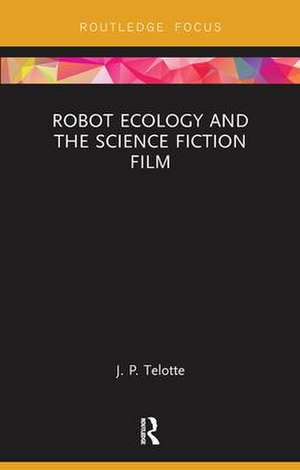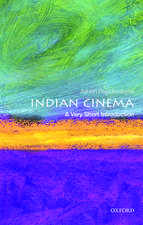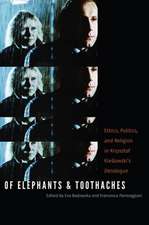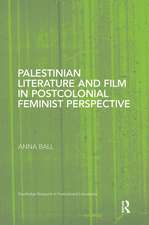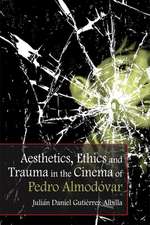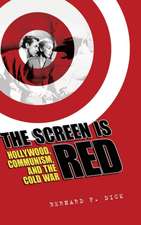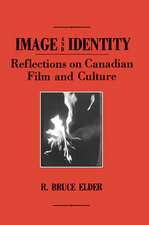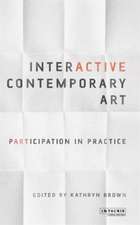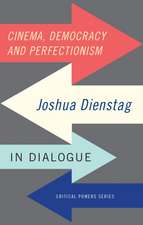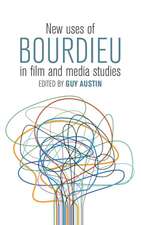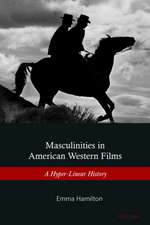Robot Ecology and the Science Fiction Film: Routledge Focus on Film Studies
Autor J. P. Telotteen Limba Engleză Paperback – 25 apr 2018
| Toate formatele și edițiile | Preț | Express |
|---|---|---|
| Paperback (1) | 184.91 lei 6-8 săpt. | |
| Taylor & Francis – 25 apr 2018 | 184.91 lei 6-8 săpt. | |
| Hardback (1) | 454.50 lei 6-8 săpt. | |
| Taylor & Francis – mar 2016 | 454.50 lei 6-8 săpt. |
Preț: 184.91 lei
Nou
Puncte Express: 277
Preț estimativ în valută:
35.38€ • 36.94$ • 29.28£
35.38€ • 36.94$ • 29.28£
Carte tipărită la comandă
Livrare economică 04-18 aprilie
Preluare comenzi: 021 569.72.76
Specificații
ISBN-13: 9781138598072
ISBN-10: 1138598070
Pagini: 120
Ilustrații: 25 Halftones, black and white; 25 Illustrations, black and white
Dimensiuni: 138 x 216 x 6 mm
Greutate: 0.45 kg
Ediția:1
Editura: Taylor & Francis
Colecția Routledge
Seria Routledge Focus on Film Studies
Locul publicării:Oxford, United Kingdom
ISBN-10: 1138598070
Pagini: 120
Ilustrații: 25 Halftones, black and white; 25 Illustrations, black and white
Dimensiuni: 138 x 216 x 6 mm
Greutate: 0.45 kg
Ediția:1
Editura: Taylor & Francis
Colecția Routledge
Seria Routledge Focus on Film Studies
Locul publicării:Oxford, United Kingdom
Public țintă
Postgraduate and UndergraduateCuprins
1. The Robot as Cultural Meme 2. The Empire’s New Robots 3. Robby the Robot and Our Electronic Wonders 4. In Our Image: The Robot as "Skin Job" 5. The Self in Tomorrowland
Notă biografică
J. P. Telotte is a professor of film and media at Georgia Tech. Co-editor of the journal Post Script, he has published widely on film and television with a special emphasis on science fiction. Among his recent publications are The Essential Science Fiction Television Reader, Science Fiction Double Feature, and Science Fiction TV.
Descriere
This book offers the first specific application in film studies of what is generally known as ecology theory, shifting attention from history to the (in this case media) environment. It takes the robot as its subject because it has attained a status that resonates not only with some of the key concerns of contemporary culture over the last century, but also with the very nature of film.
